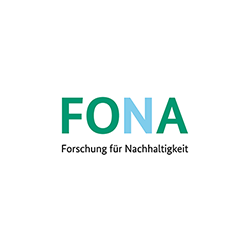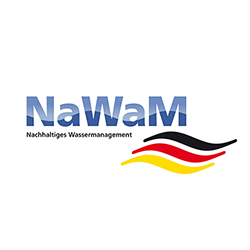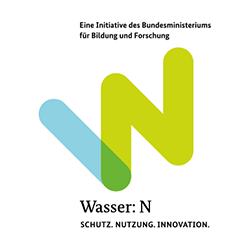Recycling of industrial saline waters by ion separation, concentration and intelligent monitoring
Background:
Increasing water scarcity increases the need to reuse saline water and at the same time to recycle the removed constituents. Currently, more than 6 million tons of chloride are discharged annually into surface waters via wastewater in Germany [1]. More than ¾ of this comes from the chemical (51%) and mineral processing industries (26%). Process wastewater and partial flows of existing treatment processes as well as saline wastewater from tailings piles or saline groundwater are relevant.
Since the salt loads are often mixtures of different salts and/or the concentration is too low for direct use, treatment processes are required to enable further use. In terms of process technology, a separation of salts from salt solutions can be achieved by multi-stage evaporation plants or plants with vapor recompression, which, however, are associated with a very high energy input and rarely allow a utilization of the residual materials/salts.
The RIKovery project consortium pursues the vision of using salt-containing industrial water streams as completely as possible, thus relieving natural water resources.
Aims:
Tasks for the reuse of salt-containing industrial water streams differ significantly with regard to the origin of the water, concentration level and ionic composition of the salts or secondary components. It is not to be expected that comprehensive treatment will be possible with a single technology. In RIKovery, therefore, the potentials of four innovative technologies are to be systematically investigated and the promising areas of application for each are to be worked out. The overall project objective is to establish a sound basis for decision-making (CAPEX, OPEX, LCA, technical feasibility) for the implementation of salt and water recovery processes on a production scale. The project consortium has identified six industrially relevant applications covering the main discharges (polymer chemistry, specialty chemistry, potash industry), which differ significantly in terms of requirements and complexity, so that overall meaningful and widely transferable project results are expected.
[1] Source: THRU.de



